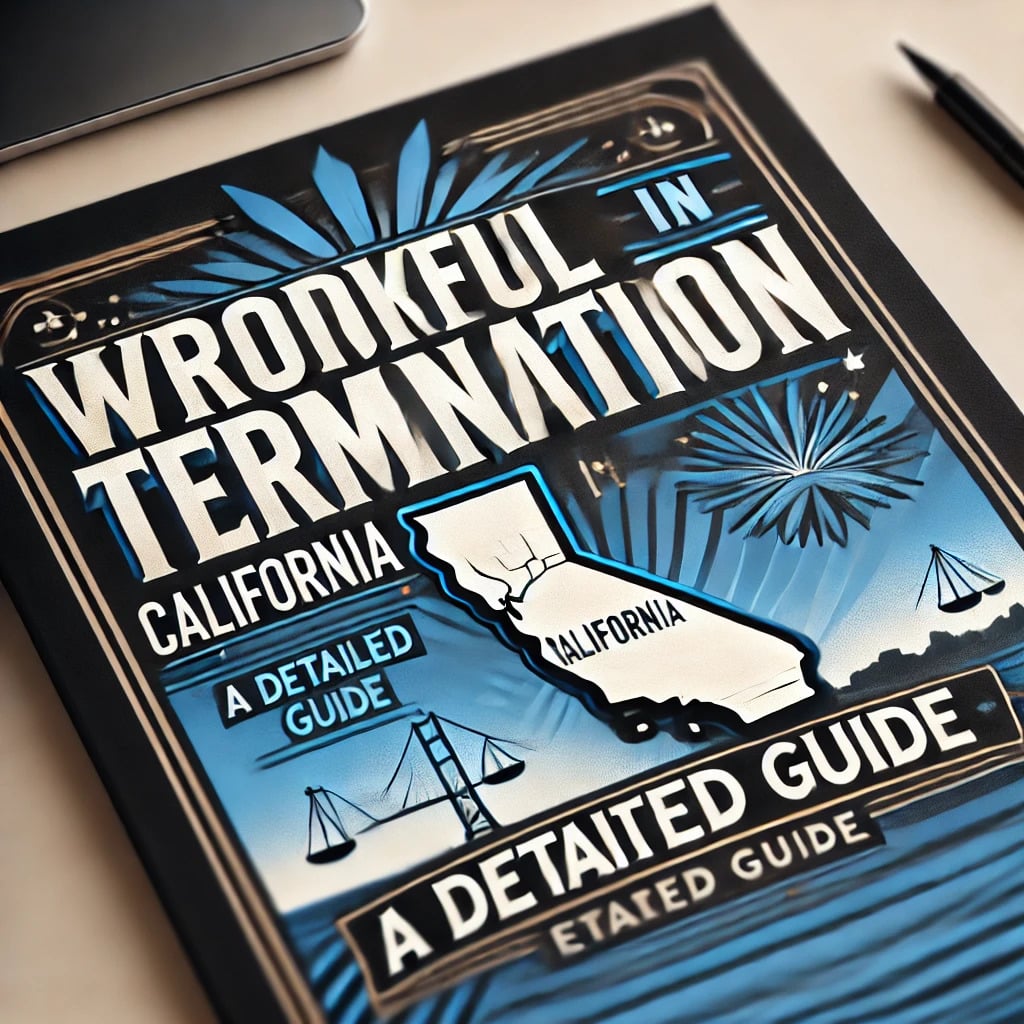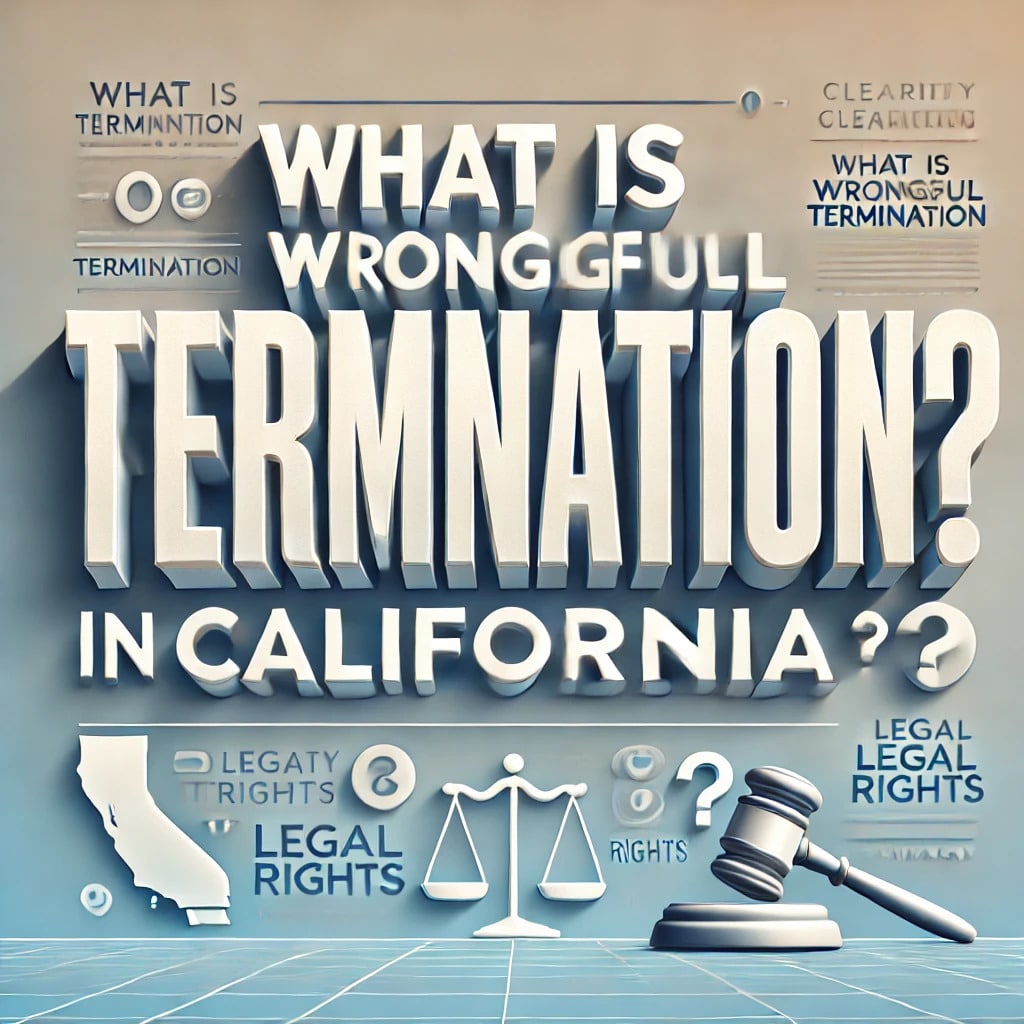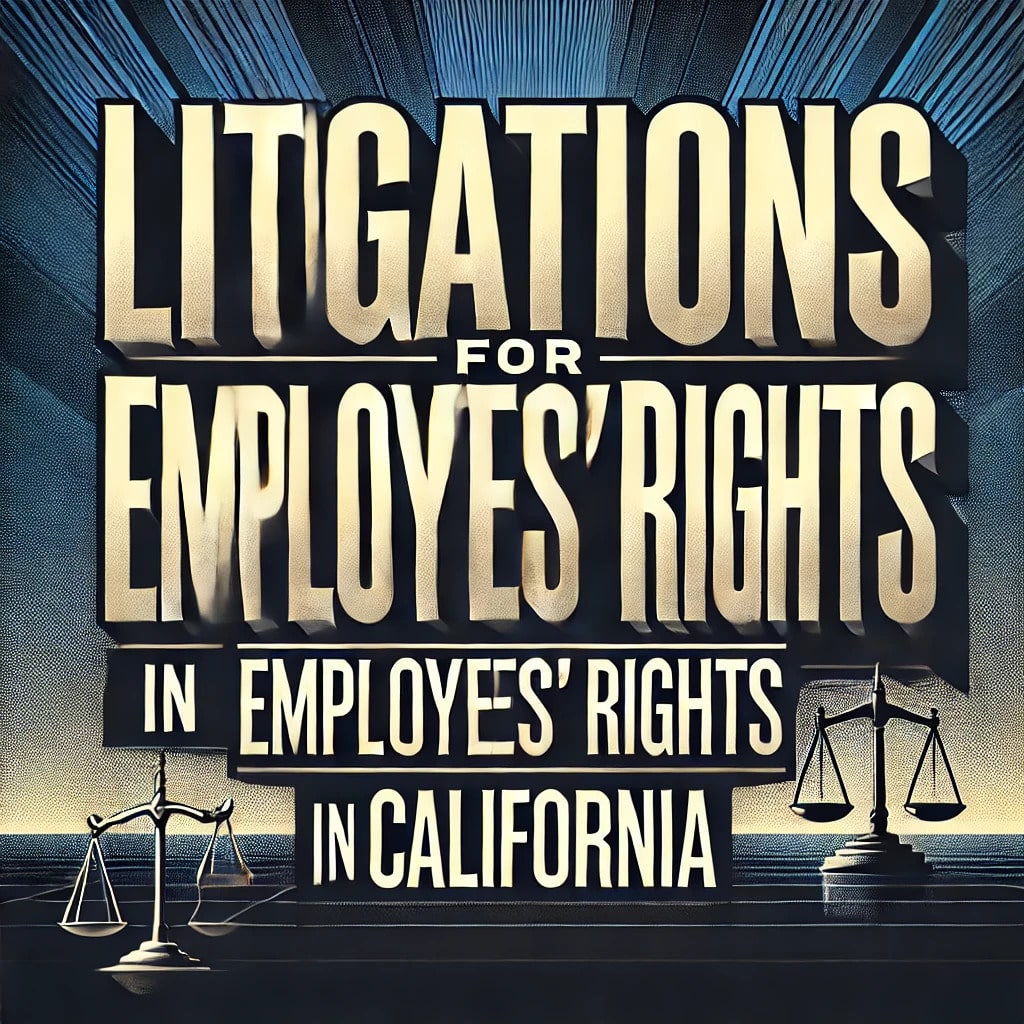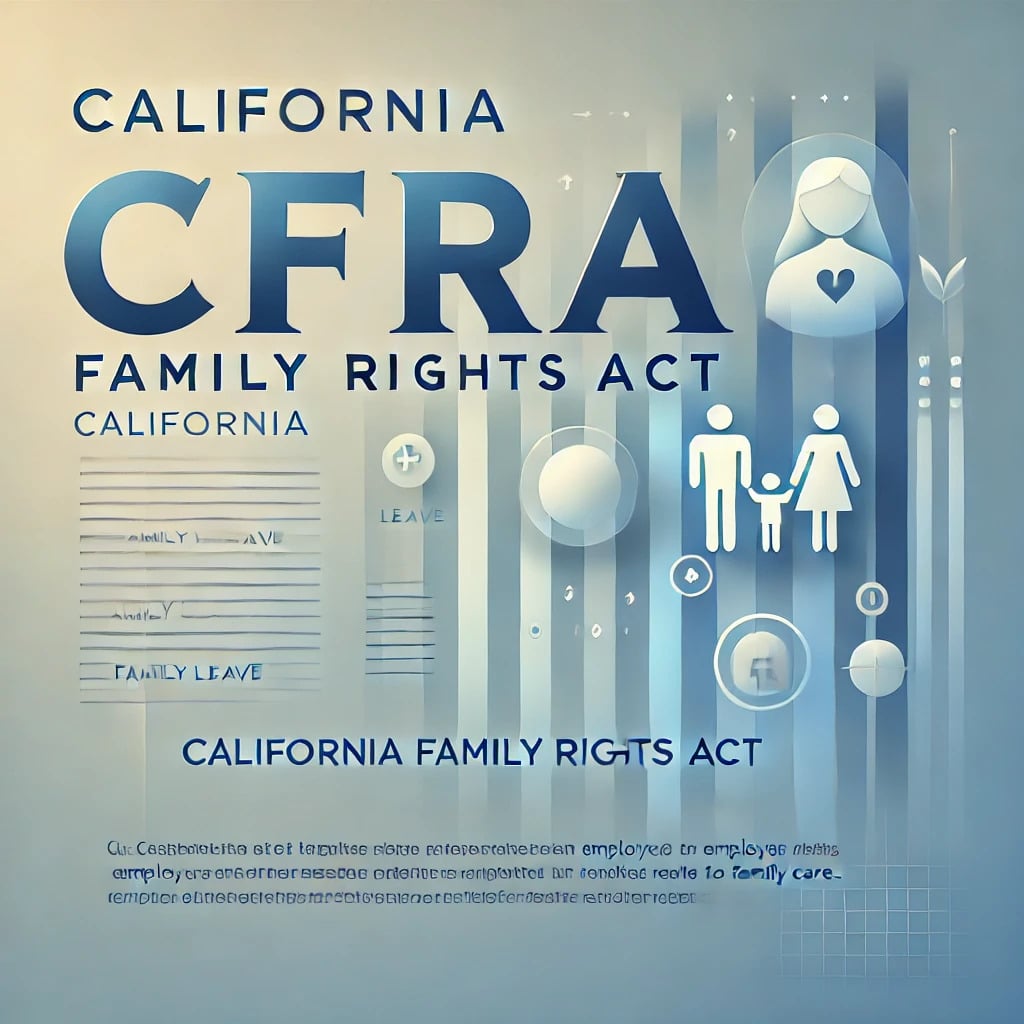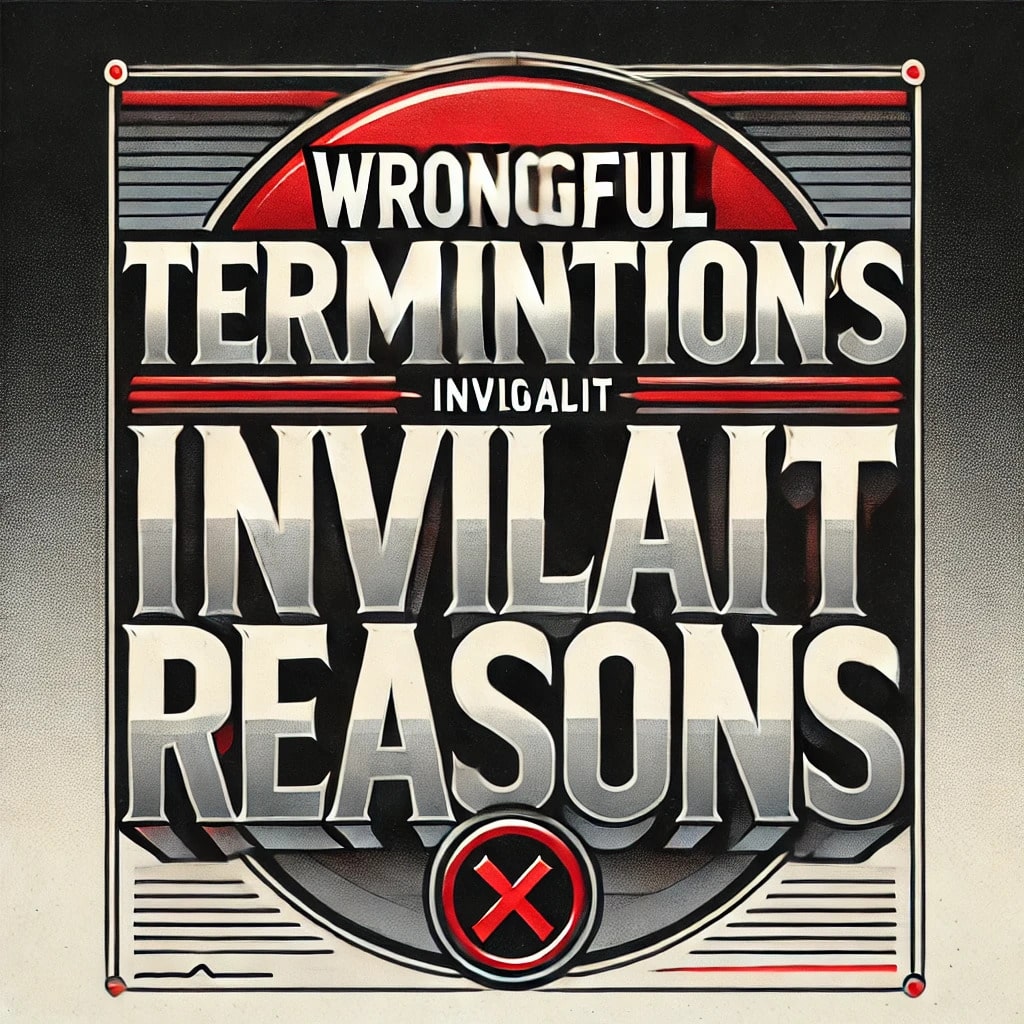“Wrongful termination” is used when an employer fires his employee without a valid reason. However, this terminology refers to the breach of contract between workers and employees who have signed the agreement before starting the job; this contract can be in written form or verbally persuasive.
Moreover, employers are prohibited from firing employees without notice. In California, employees have several rights for their jobs and termination. They can sue their employers for their wrongful termination.
Moreover, if you want to know all the details about job termination, employees’ rights, invalid reasons for wrongful termination, and the process of suing the employer for his wrong act, keep reading this article. You will find all the details about it.
What is wrongful termination in California?
A wrongful termination in California refers to an unlawful or violated condition when an employer dismisses his worker for any discrimination or invalid reason. However, this action violates the state’s law and legislation, and the employee can file a lawsuit against the employer for this wrong action.
Simply put, if an employer stops any worker from doing his duty at his firm or company for illegal and inappropriate reasons and breaches the contract, it’s called wrongful termination in California. The state has enforced specific rules and regulations to protect workers at the federal and district levels.
Everyone has to obey these laws. But if an employer does not follow the rules and terminates the workers for discrimination, retaliation, or other invalid reasons, the employee can file a legal dispute against that employer.
Who is considered an employee in California?
An employee has a specified duty, specific working hours, and a salary under some independent employer. Moreover, that individual has signed a contract with the employer, written or verbally. Additionally, he has some particular office or workplace to work in.
An employee can be from the USA or another nationality holder who worked in the state and has a particular role in the company or firm of an independent employer.
Litigations for Employees’ Rights in California
California has enforced some litigation to safeguard employees’ rights as it considers the workers and employees its backbone. However, all the employees have the same rights; there is no discrimination over gender, race, nationality, or any other class. Here is a brief look at these protection rights under California’s laws regarding employees.
Fair Employment and Housing Act (FEHA)
The Fair Employment Practices Act (FEHA) oversees discriminatory, harassing, or retaliatory terminations and defines state law rights.
The California Civil Rights Department (CRD), previously the Department of Fair Employment and Housing (DFEH), is primarily responsible for enforcing the Fair Employment and Housing Act (FEHA).
The California Labor Code
The CA Labor Code has several rules that safeguard the rights of employees, including Sections 230(a) and 2102, which protect the right to serve on juries, hold public office, and take lawful breaks. It is illegal to fire employees for asserting Labor Code-protected rights. In California, these are upheld by the Labor Commissioner’s Office.
California Family Rights Act (CFRA)
You may take up to 12 weeks of unpaid, job-protected leave for family-related, medical, or pregnancy-related disabilities under this statute, which the California CRD enforces.
California Whistleblower Protection Act (CWPA)
The CWPA is governed by the California State Auditor’s Office, state courts, and other state authorities. It safeguards workers’ rights to report legal and regulatory infractions and supports law enforcement with investigations.
Read this article: What is the legal window tint percentage in California?
At-will law for both employer and employees
California is an “at-will” state, which means that any employer can terminate the employee without reason, and the same applies to workers; they can leave the job without notice and for a particular reason. However, the job termination for some illegal and invalid reasons can be sued.
Moreover, if the employer dismissed his worker for inappropriate reasons like discrimination, using the employee’s rights, or other retaliations, he could be garnished for his act. Moreover, he may have to pay compensation for losing money, pain, and suffering.
However, the state has enforced some apparent and obvious rules for wrongful termination. Inappropriate dismissal may be for illegal reasons like harassment, discrimination, and an unbearable or discomforted workplace environment. The state has classified these classes and reasons, which are banned to use for job termination.
The protected classes
In California, you cannot discriminate against anyone for gender, race, or disability. However, the state protects all employees, and no one can humiliate or terminate them for these reasons.
- Age (40 or above)
- Ancestry
- Race
- Nationality
- Skin color
- Disability (physical/mental)
- Gender
- Pregnancy
- Religion
- Marital status
- Citizenship
- Medical condition
- Political affiliations
- Genetic problems (including transgender people)
Wrongful termination’s invalid reasons
Although the state has some rules for protecting employees, some employers dismiss their workers on invalid grounds. These reasons can be classified as follows.
Breach of the contract
As we know, California is an “at-will” state; everyone is independent to work and leave for a job. However, some workers and employers signed the agreement and discussed different conditions, like the job period, salary increase, and reasons for termination.
So, if the employer is involved in contract breach activity and terminates you from the job, you can take action against this dismissal.
Discriminations and claims
If the employer terminates the worker for his class, race, age, sex, or any other reason mentioned above, it will be called wrongful termination. Besides discrimination, here is the list of illegal and invalid reasons for job dismissal that can be claimed, and you can file a lawsuit.
Retaliation termination
Retaliation termination is also categorized as wrongful termination. No employer can dismiss you if you report the safety and health-related problems at the workplace to any authority and, in response, the employer fires you. It’s a whistleblower retaliation termination.
Harassment retaliation
Workplace sexual harassment is considered an illegal form of employment discrimination. However, if you face any sexual harassment at the workplace, report it to the employer, but if he didn’t take any notice.
You can file a workplace harassment report according to FEHA. In reaction, if your employer fired you, it will be considered a wrongful termination.
Violation of federal or state laws
If your boss or employer insists or orders you to participate in a violation or breaking the state’s rules for any reason (political/religious), and you disobey to break the rules. A job dismissal for such instances also falls in the wrongful termination list.
Retaliation over salary/wages law violation
Furthermore, you can complain if your boss violates the wage law and does not pay your salary on time. If your complaint becomes the reason for your job dismissal, it is also wrongful termination. You can file a case.
Termination over using employee’s rights
You can do any legal work after your job hours. You can join any political party or union election. Using your rights and doing anything after work cannot be the reason for your dismissal. If any employer does so, he is answerable and can be garnished for this act.
Sick leave or leave for a family member’s sickness
However, sick leave or leave for a family member’s sickness is also an invalid reason to terminate the employee. You can take leave if you or your family member needs a medical emergency, like labor pains, childbirth, or a serious medical condition. Your boss cannot fire you for this reason.
Maternity leave
No boss or employer can fire any employee if she is on maternity leave. Moreover, the boss cannot hire another worker to replace that particular worker. After maternity leave, you can rejoin the office. If your boss didn’t allow you to rejoin and start the work, you can file a case against this wrongful termination.
Who do I contact for wrongful termination in California?
Your legal options after wrongful termination depend on the nature of your claim. They include Reporting your employer to the Civil Rights Department.
If your employer terminated you due to discrimination, retaliation, or harassment, you may file a complaint with the California CRD and request an investigation.
What should you do if you face a wrongful termination?
You can face job termination in California for any reason, but if you think your case is illegal or your job termination step was wrong, stay calm and think about the possible things you can do. The “at-will” situation is pervasive in the state; most of the employers and workers follow it.
But still, you have the right to sue against your illegal and invalid job dismissal. Here is a step-by-step guide to ease the process and file the case against your boss.
Hire a professional lawyer.
First, you must consult a professional lawyer to handle your job termination case. You should discuss your case and every detail with your attorney and seek his help and guidance. Furthermore, a qualified and skilled lawyer can guide you throughout the process and tell you whether your case is valid. Moreover, he can represent you better in court and help you to get the court’s favor.
Gather information
With the help of your attorney, you can gather all the basic and essential information to strengthen your claim. Your lawyer can guide you better with essential documents and proof of your job. Proving yourself innocent and your job termination illegal is up to you and the information and evidence you provide. You must prove these things
- You were working with that employer.
- Your joining date and termination date.
- Your work was satisfactory.
- Your behavior during the job was excellent.
- You were terminated for some illegal and invalid reason.
Collect evidence and colleagues’ reviews.
Furthermore, you need to collect evidence of your wrongful termination and prove it. Collect all possible evidence and the reasons behind your termination, whether harassment, a political or religious scenario, or anything that looks illegal. You also need your colleagues’ reviews if you were sexually harassed or your termination is the result of retaliation.
Proofs and documented agreement to file a case
However, before filing the case against your former employer, you must provide documented proof if you have any. Moreover, if this job was based on a written contract, give a copy of the contract to the court in case your boss fired you and breached the contract. Additionally, your agreement conditions must be included in the court documents.
File a lawsuit
After gathering all the proofs, you can now file a case with the help of your attorney. Your legal assistant can represent you better in the courtroom and help you get compensation.
How can the employer compensate you if proven guilty of wrongful termination?
If your wrongful termination attorney has the expertise to analyze your case, guide you through the legal procedure alternatives, and effectively represent you in court, you can get compensation. Moreover, your losses can be covered, and your pains and suffering can be paid. If your employer is proven guilty of wrongful termination, the court can order your former boss to compensate you in these ways.
- Pay wages for the suspended period
- Provide legal assistance or a lawyer’s fee
- Compensation for emotional distress/ pains and suffering
- Re-enforcement/re-enter you in the office for the terminated job
How much can you get for wrongful termination in California?
Average settlements for wrongful termination in California can be likewise:
| Case Damages | Average Settlement Received |
| Low | Between $5,000 and $30,000 |
| Moderate | Between $30,000 and $100,000 |
| High | Between $100,000 and $1,000,000+ |
What is the statute of limitation for wrongful termination in California?
The statute of limitations for wrongful termination claims in California is either two or three years from the date of their termination, depending upon the reason the firing was unlawful.
Conclusion
To summarize all the above, employees are protected under the state’s laws and legislation. However, some of them can face wrongful termination in California. Those who are involved in termination over discrimination, sexual harassment, retaliation, or any other illegal reason can be punished and are answerable to the court. Moreover, the employees can use their rights and take leave for maternity, sickness, or any other emergency without hesitation. Additionally, you can complain about the workplace’s uncomfortable environment, harassment you face, or any other discrimination. No employer can fire you in retaliation. If any employer is involved in such acts, employees can file a case against him and ask for compensation.

